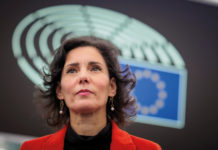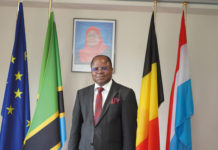1. ESTABLISHMENT AND PURPOSE
The West African Development Bank (BOAD) is the common development finance institution of the Member States of the West African Monetary Union (WAMU). It was established by an Agreement signed on 14 November 1973, and became operational in 1976. Member States include: Benin, Burkina, Côte d’Ivoire, Guinea Bissau, Mali, Niger, Senegal, and Togo.
BOAD is an international public institution whose purpose, as provided for under Article 2 of its Articles of Association, is to “promote the balanced development of its Member States and foster economic integration within West Africa” by financing priority development projects.
- SHAREHOLDING
The following are members of BOAD participating in its equity capital and administration:
– Members holding category A shares:
- Republic of Benin,
- Burkina Faso,
- Republic of Côte d’Ivoire,
- Republic of Guinea Bissau,
- Republic of Mali,
- Republic of Niger,
- Republic of Senegal,
- Togolese Republic,
- Central Bank of West African States (BCEAO), the common issuing institution of the eight Member States.
– Members holding category B shares:
- French Republic,
- DEG acting on behalf of the German Republic,
- EIB acting on behalf of the European Union,
- African Development Bank (AfDB),
- Kingdom of Belgium,
- Eximbank of India acting on behalf of the Republic of India,
- People’s Bank of China acting on behalf of the People’s Republic of China.
- AREAS OF INTERVENTION
The Bank’s areas of intervention are as follows:
- Industry and agro-industry;
- Rural development;
- Basic and modern infrastructure (roads, telecommunications, airports, ports, energy);
- Transportation, hotel industry and other services.
- FORMS OF INTERVENTION
The Bank intervenes in any of the following forms:
- Medium and long-term loans for refinancing national or regional projects;
- Equity investment in the share capital of companies or national financial institutions (NFls);
- Financing of project feasibility or engineering studies;
- Financing transfer of ownership of goods and service production and distribution facilities to WAEMU nationals;
- Assistance to small and medium-sized enterprises (SMEs) through credit or refinancing facilities to national financial institutions (NFls);
- Easing of credit conditions through interest allowance for projects falling within the non-commercial sector;
- Equity loans;
- Assistance to project preparation, promotion and implementation;
- Guarantees of bond loans;
- Project financing arrangement;
- Advice;
- Provision of financial services;
- Short-term financing of operations.
- OBTAINING A FUNDING
For the Bank to consider a project, the dossier to be submitted must include the following:
- a formal request for funding (letter, telex, fax…) from the project proponent stating the amount and the desired form of intervention (loan, refinancing facility, equity investment…);
- a detailed project design study covering the following aspects: market, project organization and management, technical and financial and possibly economic aspects
- BENEFICIARIES
The following are eligible for BOAD’s support:
- WAEMU Member States;
- their communities and government institutions;
- agencies, businesses and private individuals contributing to the development or economic integration of Member States;
- countries of the sub-region which are non-WAEMU members, their agencies or businesses, given that the Bank can intervene in development projects involving both a member country and a non-member country
Alexander Herring
Vice President CBL-ACP
PSLO World Bank Group
Sources: www.boad.org
![[:nl]FINANCIAL[:]](https://perspectives-cblacp.eu/wp-content/uploads/2018/04/FINANCIAL-696x499.jpg)


